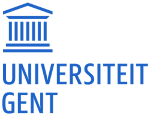Integrated food web model to test the impact of fisheries management scenarios on the coastal ecosystem of Vietnam
Published paper by the Aquatic Ecology Research Unit
A model was developed for the coastal marine ecosystem of Vietnam to evaluate interaction between fisheries and the food web, using fisheries data from 2000 to 2005. Comparing the maximum trophic level of fish estimated by the model and the mean trophic level of the catch indicates that fisheries have been harvesting high trophic level species. Using the model, we found that maintaining the fishing effort at the 2000-2005 level puts the coastal marine resources at risk as the biomasses of 10 out of 12 stocks decline by 5-20% in a 15 years period. A 20% fishing effort reduction of fish and shrimp trawling or gillnet and purse seine fishing still resulted in 10% biomass reductions of several key functional groups. Reducing fishing effort for all fisheries by 10% increased the biomass of almost all groups in the ecosystem up to 14%. Meeting social and economic, but not ecological constraints required an increase from 4 to 8.5-fold in fishing effort and resulted in the collapse of sea turtle, tuna, small pelagic fish and cephalopods. When only meeting ecological constraints, fishing efforts reduced for 4 out of the 8 fisheries, e.g. a 95% reduction was recommended for the gillnet fishery. A trade-off scenario indicated that achieving economic, social, and ecological goals was possible by 4-fold increase of traditional small-scale fisheries (e.g. handline), combined with 20-65% reductions of fish trawl and purse seine fisheries.
Authors: Pham Viet Anh, Frederik De Laender, Gert Everaert, Chu Tien Vinh, Peter Goethals
Read a press release in Dutch here.
